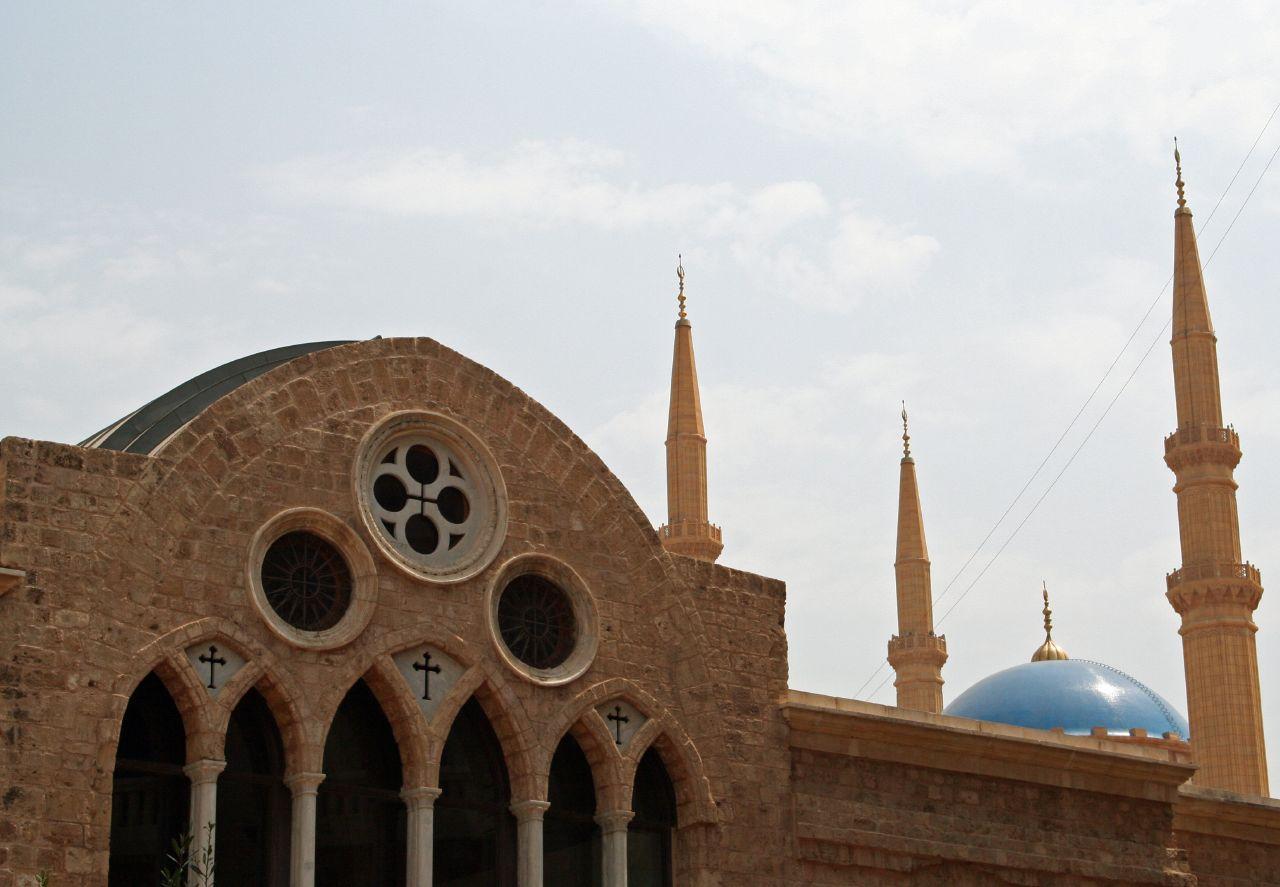In January 2002, more than a dozen senior Christian, Jewish and Muslim leaders from the Holy Land met in Alexandria, Egypt and concluded an unprecedented joint declaration pledging themselves to work together for a just and lasting peace. Beginning in the immediate wake of its signing, USIP has provided support through grants and programmatic partnerships to a variety of activities designed to further the goals of that Declaration, engaging Israeli and Palestinian interfaith leadership in the pursuit of peace within and between their communities.

The agreement, printed in full, below, became known as the First Declaration of Alexandria of the Religious Leaders of the Holy Land, and pledges the faith leaders to use their religious and moral authority to work for an end to violence and the resumption of the peace process.
First Alexandria Declaration of the Religious Leaders of the Holy Land – January 21, 2002
In the name of God who is Almighty, Merciful and Compassionate, we, who have gathered as religious leaders from the Muslim, Christian and Jewish communities, pray for true peace in Jerusalem and the Holy Land, and declare our commitment to ending the violence and bloodshed that denies the right to life and dignity.
According to our faith traditions, killing innocents in the name of God is a desecration of his Holy Name, and defames religion in the world. The violence in the Holy Land is an evil which must be opposed by all people of good faith. We seek to live together as neighbors, respecting the integrity of each other's historical and religious inheritance. We call upon all to oppose incitement, hatred, and the misrepresentation of the other.
- The Holy Land is holy to all three of our faiths. Therefore, followers of the divine religions must respect its sanctity, and bloodshed must not be allowed to pollute it. The sanctity and integrity of the Holy Places must be preserved, and the freedom of religious worship must be ensured for all.
- Palestinians and Israelis must respect the divinely ordained purposes of the Creator by whose grace they live in the same land that is called Holy.
- We call on the political leaders of both parties to work for a just, secure, and durable solution in the spirit of the words of the Almighty and the Prophets.
- As a first step now, we call for a religiously sanctioned cease-fire, respected and observed from all sides, and for the implementation of the Mitchell and Tenet recommendations, including the lifting of restrictions and return to negotiations.
- We seek to help create an atmosphere where present and future generations will co-exist with mutual respect and trust in the other. We call on all to refrain from incitement and demonization, and to educate our future generations accordingly.
- As religious leaders, we pledge ourselves to continue a joint quest for a just peace that leads to reconciliation in Jerusalem and the Holy Land, for the common good of all our peoples.
- We announce the establishment of a permanent joint committee to carry out the recommendations of this declaration, and to engage with our respective political leadership accordingly.
Host & Chair
His Eminence Sheikh Mohammed Sayed Tantawi, Grand Mufti of the Al-Azhar & His Grace the then-Archbishop of Canterbury, Dr. George Carey.
Signatories
- The Shephardi Chief, Rabbi Bakshi Doron;
- The Deputy Foreign Minister of Israel, Rabbi Michael Melchior;
- The Rabbi of Tekoa, Rabbi Menachem Fromen;
- Rabbi David Rosen, President of the World Conference on Religion and Peace;
- The Rabbi of Savyon, Rabbi David Brodman;
- Rabbi Yitzak Ralbag, Rabbi of Maalot Dafna;
- Chief Justice of the Sharia Courts, Sheikh Taisir Tamimi;
- Minister of State for the Palestinian Authority, Sheikh Tal El Sider;
- Mufti of the (Palestinian) Armed Forces, Sheikh Abdusalam Abu Schkedem;
- The Mufti of Bethlehem, Sheikh Taweel;
- Representative of the Greek Patriarch, Archbishop Aristarchos;
- The Latin Patriarch, His Beatitude Michel Sabbah;
- The Melkite Archbishop, Archbishop Boutros Mualem;
- Representative of the Armenian Patriarch, Bishop Arist Shrivinian and The Bishop of Jerusalem, The Right Reverend Riah Abu El Assal





